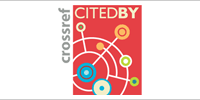| Abstract |
| Recently developed ultra-strong GIGA STEEL exhibites superior mechanical properties, with a high tensile strength of more than 1.5 GPa and good impact toughness. Nevertheless, its application to auto parts has been severely restricted, mainly due to a substantial reduction in the resistance to hydrogen embrittlement (HE) induced by aqueous corrosion. The susceptibility to this HE is closely associated with the carbon content, which leads essentially to the precipitation of iron carbides (Fe2.4C / Fe3C) with a low hydrogen overvoltage. This study focuses mainly on the effect of carbon content on the aqueous corrosion and hydrogen diffusion characteristics of ultra-strong steels. The hydrogen reduction reaction on the steel surface, and its diffusion kinetics in the steel matrix were evaluated using electrochemical polarization and hydrogen permeation tests, respectively. Furthermore, the HE indices of steels with different carbon contents were determined in a weakly acidic solution using the slow strain rate test (SSRT). This study demonstrates clearly that the hydrogen reduction rates were increased and its diffusion kinetics were decreased significantly, with increasing carbon content. Based on the present results, it is concluded that the critical technical issue for the development of ultra-strong automotive steels is the effective control of the carbide fractions in the microstructure.
(Received May 30, 2018; Accepted July 2, 2018) |
|
|
| Key Words |
| ultra-strong steel, carbide, corrosion, hydrogen diffusion, hydrogen embrittlement |
|
|
 |
|








